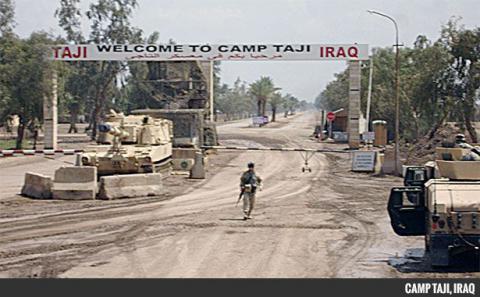
On 22 February 2017, Saleh Al Mashhadani, a 22-year-old farmer suffering from hepatitis, disappeared after his arrest by a security forces patrol while working at Salam Al Hashimi’s farms. Al Hashimi is the founder and director of Al Wissam Humanitarian Assembly, a NGO that documents cases of enforced disappearances in Iraq. We fear that Al Mashhadani was arrested because he was working on Al Hashimi’s farm, as a form of reprisals against the latter. Alkarama and Al Wissam Humanitarian Assembly submitted an urgent appeal concerning the victim’s case to the United Nations Committee on Enforced Disappearances (CED), hoping that this treaty body − a committee of independent experts that monitors implementation of the International Convention for the Protection of All Persons from Enforced Disappearance (ICPPED) by its State parties − could help locate him.
On 22 February 2017, Al Mashhadani was working in Al Hashimi’s farm where he lives with his family, in the town of Tarmiyah in Saladdin governorate, close to Al Taji military camp when a patrol composed of simple and high ranking officers of the Military Intelligence, the Counter-terrorism unit and militiaman belonging to the Popular Mobilisation Units (PMU) – an umbrella organisation composed of 67 militias officially integrated in the Iraqi army but acting in complete impunity – arrested him.
Following his disappearance, Al Mashhadani’s family received phone calls by the security agencies threatening to evict them or to pay 3,000$ for his release. Indeed, similar military patrols had already visited the farm in the past and inquired about the current location of its legal owner. The latter, Salam Al Hashimi, currently living abroad, is the founder and director of Al Wissam Humanitarian Assembly NGO, which documents cases of enforced disappearances in Iraq the submits them, together with Alkarama, to the United Nations human rights mechanisms, left Iraq fearing persecution. Al Wissam Humanitarian Assembly’s staff, as well as Al Hashimi himself, have already suffered threats, arrests and even torture as retaliation for their human rights work.
“We are extremely concerned over the fate of Al Mashhadani and his health conditions,” comments says Inès Osman, Alkarama's Regional Legal Officer for the Mashreq. “It is even more disturbing that Al Mashhadani’s disappearance is used as a tool of retaliation against Al Hashimi and Al Wissam Humanitarian Assembly’s tireless work on behalf of victims of disappearance. As such, reprisals are prohibited, while enforced disappearances, due to their systematic and widespread character in Iraq may amount to crimes against humanity. The Iraqi authorities have a legal obligation to put an end to those abhorrent practices with the greatest urgency.”
For more information or an interview, please contact media@alkarama.org (Dir: +41 22 734 1008).
